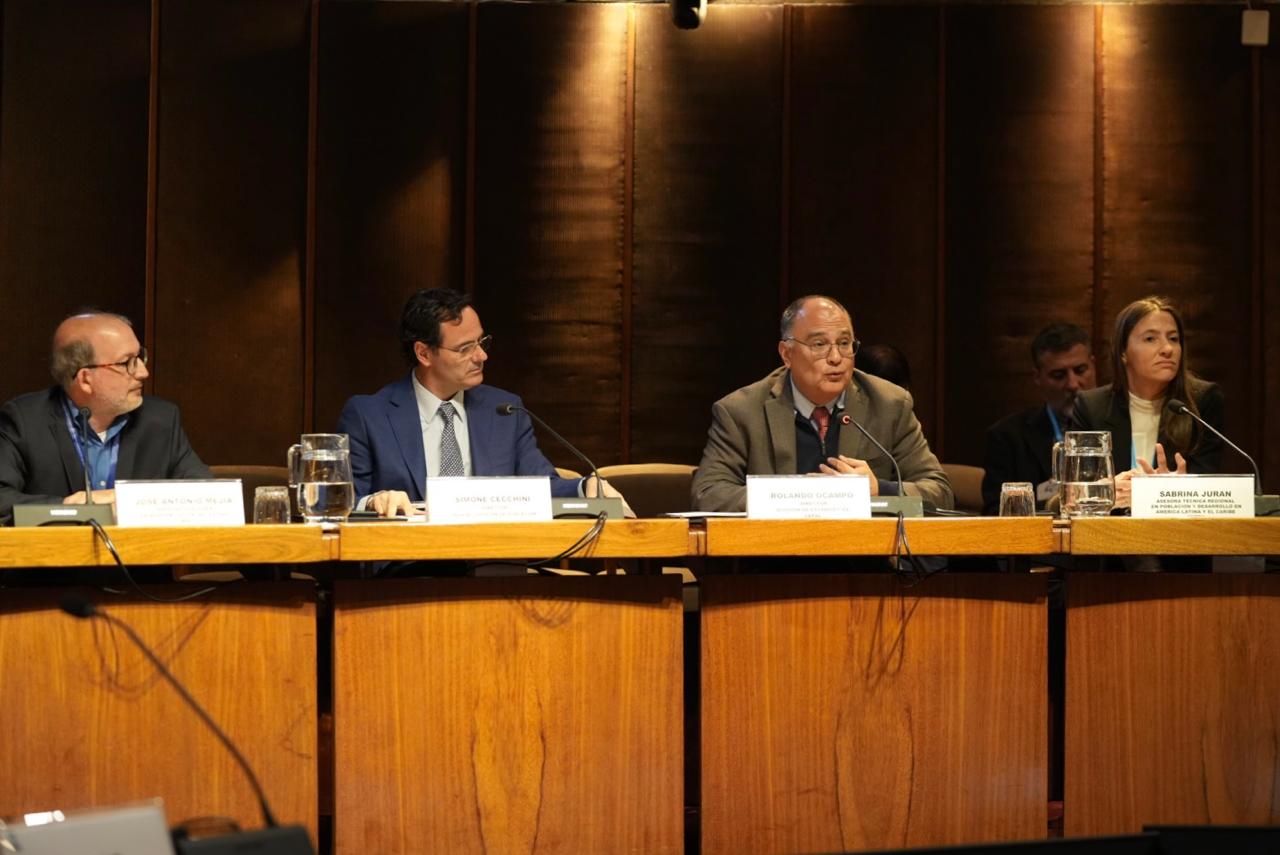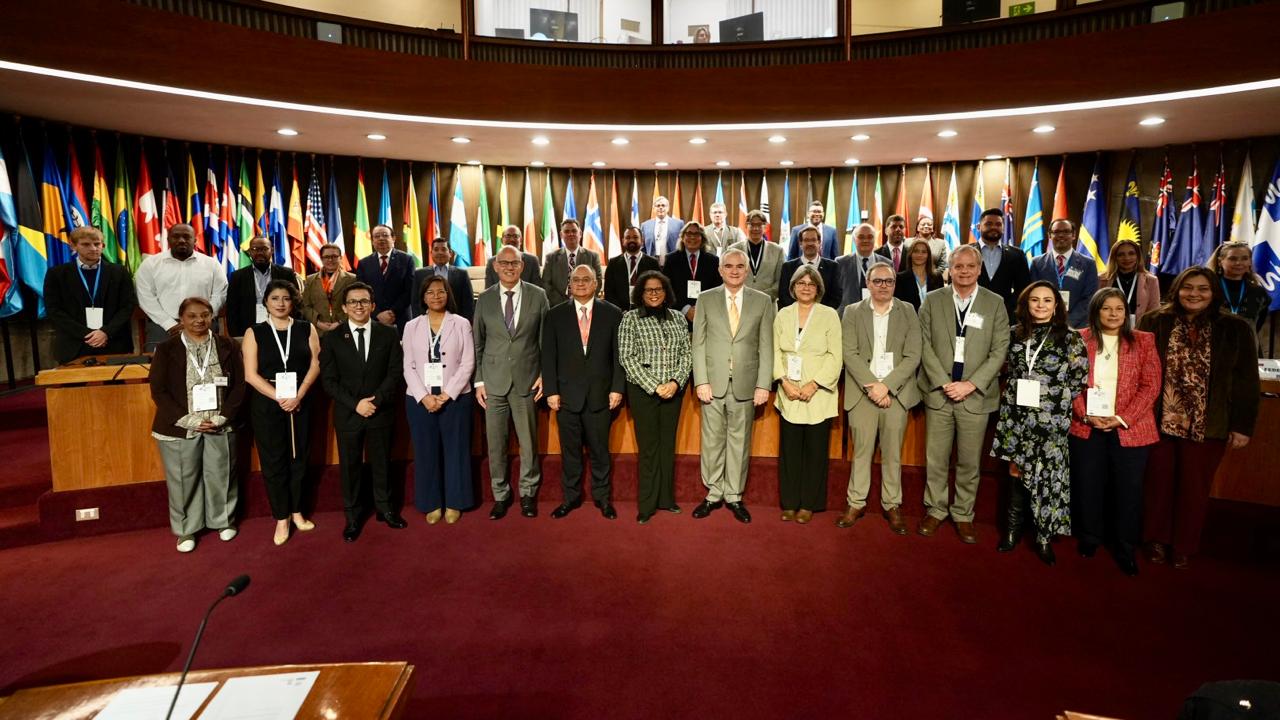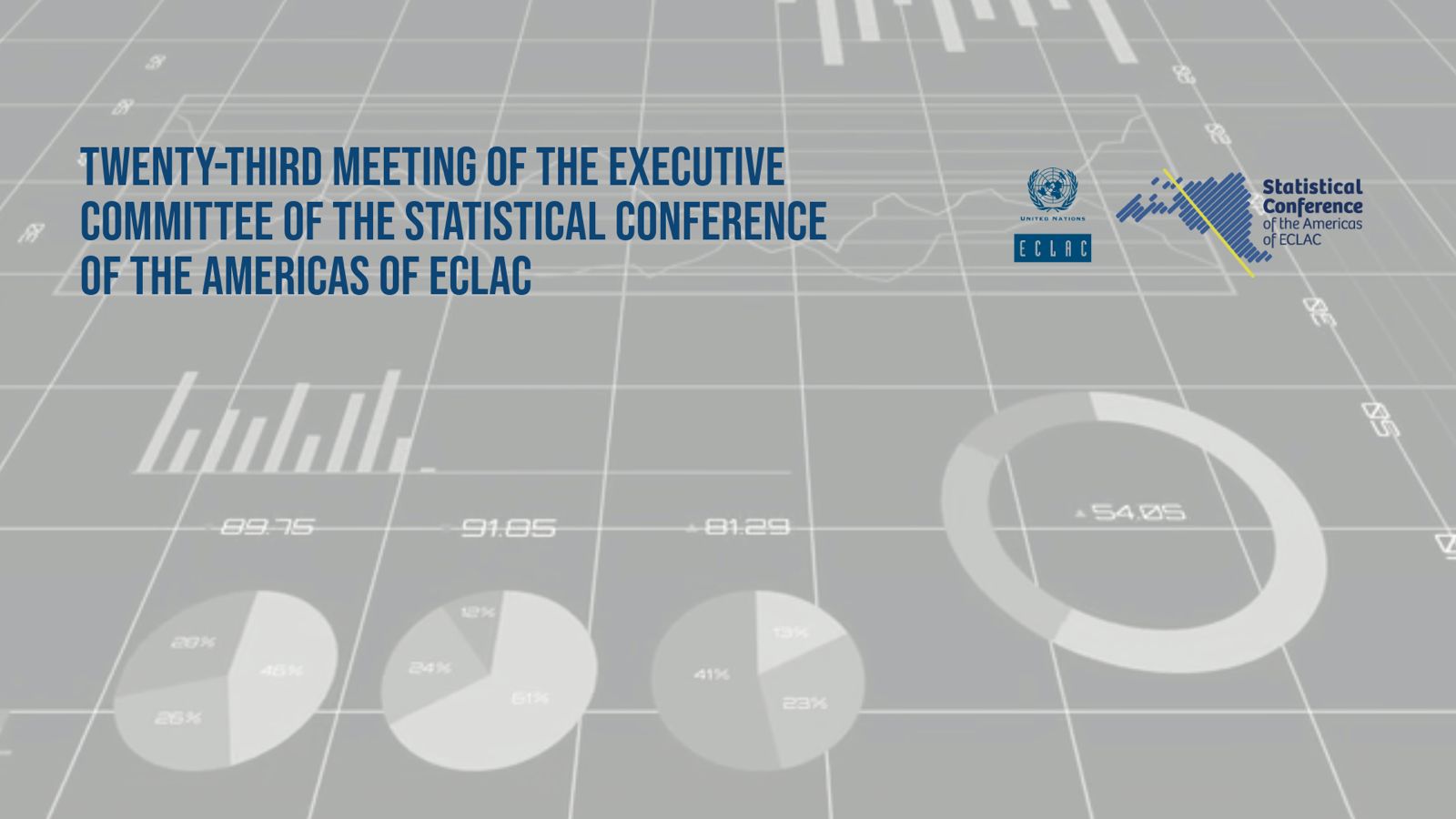Regional seminar on innovations in the population and housing census of the 2020 Round looking towards the 2030 Round
Work area(s)
Teaser
This is a side event of the twenty-third meeting of the Executive Committee of the SCA-ECLAC. The objective of the seminar is to share innovations from the 2020 census round and lessons learned from the perspective of directors of national statistical offices. It seeks to contribute to the planning of the 2030 census round, enhancing lessons learned and capacities acquired in light of the results and challenges.
Event information

Date
27 Aug 2024, 05:00 - 14:00Event type
Participation
Organized jointly by the Latin American and Caribbean Demographic Center (CELADE)-Population Division and the Statistics Division of ECLAC, with the collaboration of the United Nations Population Fund (UNFPA) and the Inter-American Development Bank (IDB).
The 2020 round of population and housing censuses has been especially complex in the region, both due to the impact of the COVID-19 pandemic and the resulting socioeconomic crisis due to the sociocultural changes, technological challenges, political contexts, and citizen trust among other aspects. Within the framework of the Twelfth Meeting of the Statistical Conference of the Americas of the Economic Commission for Latin America and the Caribbean (September 26 to 28, 2023), a series of political, technical and institutional challenges of the National Statistics Offices (NSO) were identified, concerning both the process of carrying out their censuses of the 2020 round and the dissemination of their results. In this event, the role of regional collaboration among countries was emphasized for making well-informed decisions that minimize the risks inherent in the complex processes involved in population and housing censuses. Furthermore, the assistance of specialized international organizations, the strengthening of networks and regional alliances; the exchange of best practices, and the circulation of technical resources were highlighted as crucial components.
Similarly, in the SCA-ECLAC meetings as well as other discussions and debates related to censuses, efforts made by the National Statistical Offices have been recognized to face the challenges of the 2020 round. The offices have innovated in the management, technical, and methodological aspects, with lessons that must be capitalized towards the 2030 round of population and housing censuses. These innovations include the use of mobile capture devices (MCD), online self-enumeration, and hybrid training, among many others. In addition, as we approach the 2030 round, it is essential to improve administrative records and facilitate access to them, acknowledging their significant potential as a source for population statistical data.
Objective
This seminar aims to share the innovations introduced in the 2020 round of population and housing censuses and the lessons learned, from the perspective of the directors or managers of the national statistical offices, with focus on planning and preparing the 2030 census round. It is expected to enhance the NSOs learning and capabilities in light of the quality of the results obtained and the challenges ahead.
Programme of work
Welcoming remarks
Opening remarks:
Presentation(s)
A brief overview of the 2020 population and housing censuses in Latin America and the Caribbean and the main challenges facing the 2030 round
Objective: Summary of the status of the censuses in the region, highlighting the main characteristics, innovations, and challenges faced.
Presentation(s)
» Intervenciones de los países / Country interventions
Main challenges for strategic planning and political-social contexts
Moderator: Jose Antonio Mejía, IDB
Objective: Know the main challenges at a strategic level to plan and implement and communicate the census in uncertain scenarios, due to the pandemic, political calendars, budgetary restrictions, among others.
Presentation(s)
» Intervenciones de los países / Country interventions
Strategies for large scale recruitment, selection, hiring and payment
Moderator: Halim Brizan, CARICOM
Objective: learn about the administrative strategies or solutions to achieve efficient selection, hiring and payment of personnel.
Presentation(s)
» Intervenciones de los países / Country interventions
Challenges in the use of MCD, web self-enumeration, and other capture methods, in balance with the extension of fieldwork, control, and monitoring of coverage and quality of the census data
Moderator: Peter Abad, Instituto Nacional de Estadística e Informática (INEI) de Perú
Objective: learn from experiences in the use of mobile capture devices as a tool to enhance coverage and quality assurance during the census operation, also highlighting the complexities of the parallel use of various capture methods, such as web self-enumeration and progress control on the field.
Presentation(s)
» Intervenciones de los países / Country interventions
The virtues of new technologies in the dissemination strategy of census data
Moderator: Diana Castillo-Trejo, Statistical Institute of Belize
Objective: become familiar with the new ways of presenting census results such as geographic information systems, dissemination of microdata, and online processing.
Presentation(s)
» Intervenciones de los países / Country interventions
Challenges in advancing Population Statistical Records
Moderator: Norma Medina, Paraguay
Objective: presentar los avances y desafíos en los desarrollos de los registros estadísticos de población de cara a la ronda 2030.
Presentation(s)
» Intervenciones de los países / Country interventions
Discussion panel: Census coverage and quality, addressing various approaches from strategic, operational, and communication perspectives
Introduction and moderation: Miosotis Rivas Peña, Oficina Nacional de Estadística (ONE) de República Dominicana
Presentation(s)
Final comments and closing
Presentation(s)
Related content

Representatives of National Statistical Offices Share Innovations and Lessons Learned from the 2020 Census Round
The event, held in the framework of the twenty-third meeting of the Executive Committee of the Statistical Conference of the Americas of ECLAC, sought to contribute to planning and preparing the 2030…

Twenty-third meeting of the Executive Committee of the Statistical Conference of the Americas of ECLAC
This twenty-third meeting of the Executive Committee of the Statistical Conference of the Americas was held from 28 to 29 August 2024, at the headquarters of ECLAC in Santiago, Chile.

Representatives of National Statistical Institutes from Latin America and the Caribbean Will Analyze the Outlook for Statistical Production in the Region in the Coming Years
The Executive Committee of the Statistical Conference of the Americas of ECLAC will hold its twenty-third meeting on August 28-29, 2024 at the regional organization’s central headquarters in Santiago…
Attachment(s)
Organizing institution
Economic Commission for Latin America and the Caribbean (ECLAC)
- https://www.cepal.org
- 56 222100000
Banco Interamericano de Desarrollo
- http://www.iadb.org/es/banco-interamericano-de-desarrollo,2837.html
- (202) 623-1000
